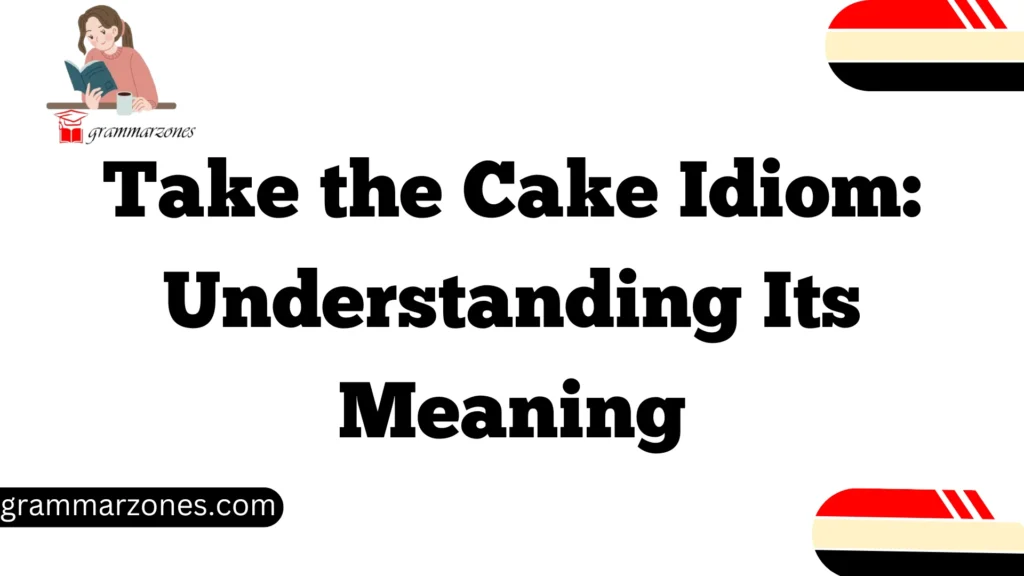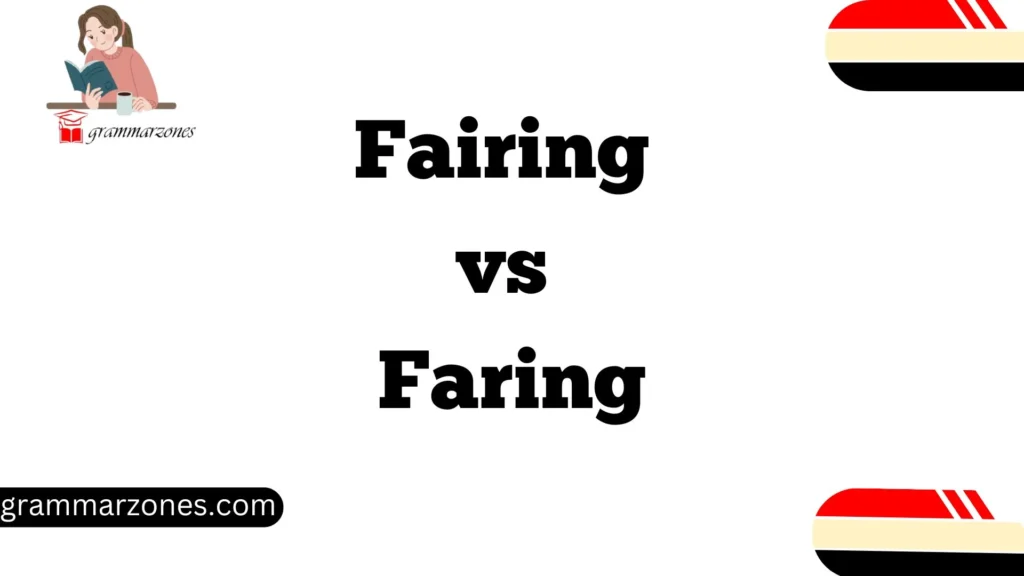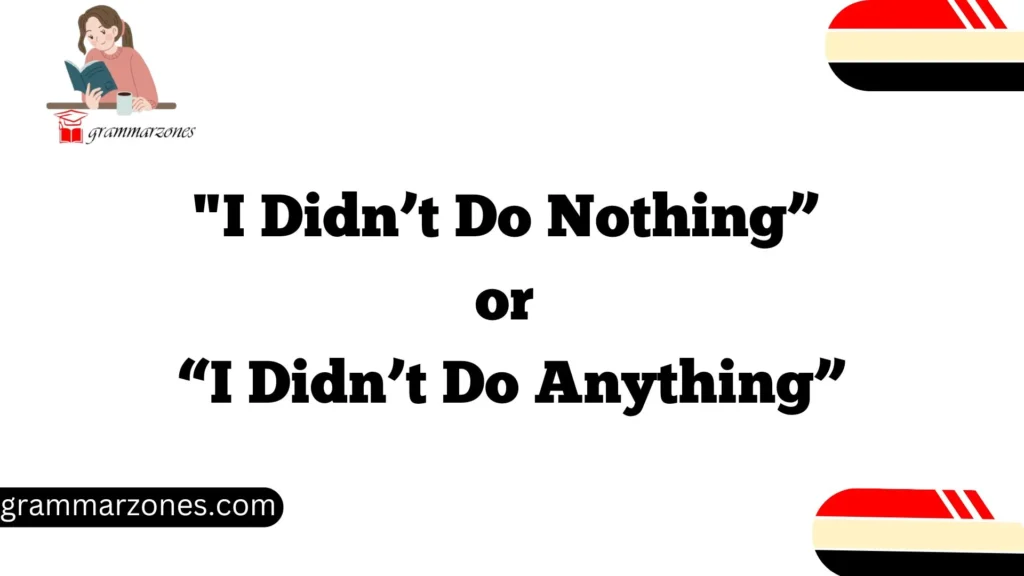Have you ever heard someone say, “That takes the cake!” and wondered what they really mean? Whether you’ve come across it in a conversation, a TV show, or a book, this quirky idiom is widely used to express surprise, amazement, or even exasperation. While its meaning might seem pretty straightforward, there’s actually a lot more to this phrase than meets the eye.
In this blog post, we’ll explore the idiom “take the cake” in depth, covering its meaning, origins, variants in different English-speaking countries, and how it’s used in modern speech. We’ll also dive into some fun facts, historical insights, and provide examples of how this phrase has made its mark in literature, media, and even in baking contests. Whether you’ve used this expression yourself or just heard others do it, by the end of this article, you’ll have a full understanding of what “taking the cake” really means!
What Does “Take the Cake” Mean?
“Take the cake” is an idiomatic expression used to describe something that is extraordinary—either in a positive or negative way. It’s often used to express surprise, astonishment, or disbelief, typically when something stands out from the norm, usually in an unexpected or exaggerated way.
Here’s a basic breakdown of the two main meanings:
1. In a Positive Sense:
When someone says “That takes the cake” in a positive way, they are expressing that something is the best or most impressive of its kind.
Example:
- “Her performance in the play was amazing, but that last monologue really took the cake.”
2. In a Negative Sense:
On the flip side, the phrase can also be used to express disappointment or frustration. When used in this context, it implies that something has gone so far beyond expectations—typically in a negative way—that it becomes unbelievable.
Example:
- “He was late to the meeting, then spilled coffee on the client’s documents. That really took the cake.”
So, whether it’s used to praise someone or criticize them, the idiom revolves around something that stands out, often in an extreme way.
Tracing the Origins of “Take the Cake”
The phrase “take the cake” dates back to the 19th century, but its exact origin remains somewhat of a mystery. Some believe it stems from baking contests that were common in American and European culture. In those contests, the winner would often receive a cake as a prize. The expression “take the cake” may have referred to the action of winning this highly coveted prize.
However, there’s a slightly darker twist to the phrase. Some historians suggest that it could be related to the idea of “taking the cake” from a prize table after a contest, implying that someone outdid all others. But it wasn’t just about winning—it was about surpassing everyone else in a way that was clearly unexpected or unusual.
A Possible Link to Cake Competitions:
The tradition of cakewalking—a competitive social dance popular in the 19th century Southern United States—could also be linked to the phrase. Winners of these cakewalk competitions were often awarded a cake, so “taking the cake” might have come from the idea of standing out in a competition and taking the grand prize.
In summary, whether tied to baking contests or cakewalking, the expression emphasizes being the best or doing something far beyond the ordinary, even in the context of contests.
American vs. British English: Variants of “Take the Cake”
The phrase “take the cake” is widely recognized in both American and British English, though the way it’s used can sometimes differ slightly. Here’s how the idiom compares across the pond:
American English:
In American English, “take the cake” tends to be used more frequently and in a variety of contexts. It’s often heard in both casual conversations and pop culture references, from TV shows to music lyrics.
Example:
- “After hearing about his latest stunt, I think he really took the cake.”
British English:
While the idiom is also recognized in British English, it’s less common and might be replaced by other expressions, like “that’s the last straw” or “that really takes the biscuit.”
Example:
- “His behavior today really took the biscuit—I can’t believe it!”
While both versions carry the same meaning, American English uses the phrase more often and in a wider range of contexts.
Usage Examples: How “Take the Cake” Appears in Modern Speech
Now that we know the meaning and origins of the phrase, let’s look at some real-world examples of how people use “take the cake” in modern speech. This idiom appears in everything from conversations to social media posts. Here are a few scenarios where you might hear the phrase in use:
In Social Media:
- “I thought I’d seen it all, but that video of the dog playing the piano takes the cake! 🎹🐶”
- “That comment was totally out of line. It really took the cake!”
In News:
- “When the politician claimed that they hadn’t seen the reports, it took the cake in terms of excuses.”
- “The company’s response to the scandal took the cake—they didn’t even address the main issue!”
In Casual Conversation:
- “I thought I was having a bad day, but then I found out my favorite band was coming to town—now that takes the cake!”
- “The way she managed to solve that problem in 5 minutes really takes the cake.”
In these examples, the phrase is used to express surprise, disbelief, or simply to emphasize an unexpected action or event that goes above and beyond what you’d expect.
Figurative Use: When “Take the Cake” Takes the Spotlight
While “take the cake” can be used literally, it often takes on a figurative role, adding humor or exaggeration to the situation. Let’s take a look at how this idiom functions figuratively in creative writing, satire, and everyday life.
In Literature:
Writers use idioms like “take the cake” to emphasize moments of extreme emotion or action. In a novel, a character might say, “That takes the cake!” to highlight how outrageous or absurd something is, drawing readers’ attention to the importance of the situation.
In Satire and Humor:
This idiom is also a popular tool for humorists and satirical writing. For instance, a comedian might use it to exaggerate a point: “I’ve seen some ridiculous things, but that? That really takes the cake!”
The Culinary Contest Connection: How Baking Contests Shaped “Take the Cake”
As mentioned earlier, cake is at the heart of this idiom, so it’s no surprise that baking contests played a key role in shaping the phrase.
In the early 20th century, community baking competitions were common at county fairs, church events, and other social gatherings. The person who baked the best cake often won the title of “cake-taker,” symbolizing someone who stood out among the competitors.
This connection to cake competitions not only highlights the idiom’s roots but also emphasizes the intensity of competition and the idea of surpassing expectations.
“Take the Cake” in Literature and Media
The idiom “take the cake” isn’t just confined to casual conversation; it has made appearances in various literary works, films, and television shows. From classic novels to modern sitcoms, this expression helps characters express surprise and disbelief in a relatable way.
In Movies and TV Shows:
The phrase pops up in countless movies and TV shows as characters react to situations that are over-the-top or unbelievable.
- Example from TV: “That prank you pulled really took the cake, James!”
- Example from Movies: “After everything that’s happened, that’s the one thing that takes the cake!”
Conclusion: Why “Take the Cake” Continues to Endure
In conclusion, the phrase “take the cake” continues to be a popular, widely-used idiom that reflects the surprise, extremity, and impressiveness of certain actions or events. Whether it’s used to describe something amazing or outrageous, this idiom has stood the test of time because it captures the emotional extremes people feel in surprising situations.
Next time you hear it, you’ll be able to appreciate the full richness of its meaning, origins, and enduring appeal!
FAQs About “Take the Cake”
1. What does it mean when someone says “That takes the cake”?
It means something is surprising, outstanding, or extreme—either positively or negatively.
2. Is “take the cake” used more in American or British English?
It’s more commonly used in American English, though British speakers may use similar phrases like “take the biscuit.”
3. Can the phrase be used in a positive way?
Yes, it can! When used positively, it emphasizes something particularly impressive or remarkable.
4. Why does the idiom involve cake?
The idiom likely originated from baking contests where the winner “took the cake” as a prize, symbolizing superiority in the contest.

Grace Marie is the passionate mind behind GrammarZones.com, dedicated to helping writers, students, and professionals master the art of grammar and effective communication. With years of experience in language studies and a deep love for writing, Grace simplifies complex grammar rules, making learning engaging and accessible.






